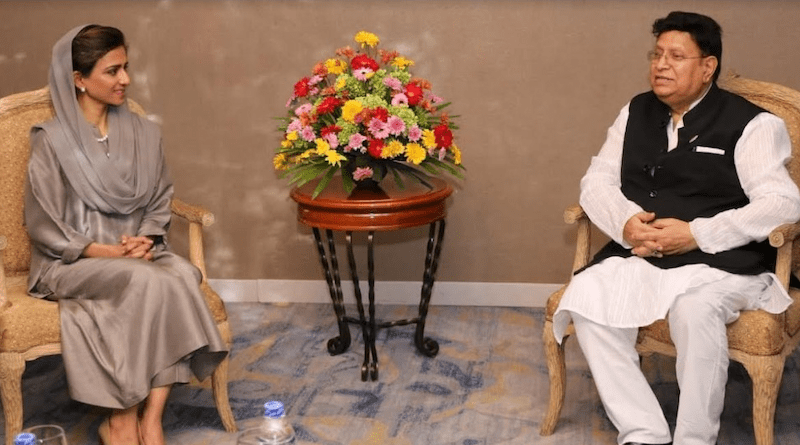Pakistan’s Commitment To Women Empowerment And Its Future – OpEd
Pakistan has been making significant efforts towards empowering women in recent years. The country has been working towards gender equality by introducing pro-women legislation, ratifying international human rights conventions, and adopting policies aimed at uplifting women in various aspects of life. Pakistan has recognized that empowering women is critical for its development and progress.
Pakistan’s efforts towards empowering women can be traced back to its commitment to the UN’s Sustainable Development Goals, particularly SDG 5, which is aimed at achieving gender equality and empowering all women and girls. Pakistan has made significant strides towards meeting this goal.
One of the most significant steps taken by Pakistan towards empowering women is the ratification of international human rights conventions. Pakistan has ratified most international human rights conventions, including the Convention on the Elimination of All Forms of Discrimination against Women (CEDAW), the Beijing Platform for Action, and the Sustainable Development Goals. By ratifying these conventions, Pakistan has committed itself to promoting gender equality and empowering women.
Pakistan has also introduced pro-women legislation to protect women’s rights and enhance their participation in various aspects of life. One such legislation is the National Gender Policy Framework (2022), which provides a comprehensive framework for promoting gender equality and women’s empowerment. The framework is aimed at addressing the root causes of gender inequality and promoting women’s participation in all spheres of life, including education, employment, health, and political participation.
Another significant piece of legislation introduced by Pakistan is the Anti-rape Ordinance (2020). The ordinance is aimed at protecting women from sexual violence and providing them with legal remedies in case of rape. The ordinance has introduced strict penalties for rape, including the death penalty, and has made it mandatory for the police to register rape cases and complete investigations within a stipulated time.
Pakistan has also introduced the Domestic Violence against Women – Prevention & Protection (2020) legislation to protect women from domestic violence. The law provides legal remedies for women who are victims of domestic violence and establishes mechanisms to prevent and protect them from such violence. The law has also made it mandatory for the police to register domestic violence cases and complete investigations within a stipulated time.
Pakistan has also taken steps to enhance women’s participation in politics. The country has reserved seats for women in the national and provincial assemblies and introduced a quota system to increase women’s representation in local government bodies. These measures have resulted in a significant increase in women’s representation in politics in Pakistan.
Moreover, Pakistan has introduced policies aimed at enhancing women’s access to education and healthcare. The government has introduced programs aimed at increasing the enrollment of girls in schools and providing them with quality education. The government has also established programs aimed at improving maternal and child healthcare, providing women with access to family planning services, and reducing maternal mortality rates.
Policies aimed at promoting women’s economic empowerment have been adopted. The government has launched various programs aimed at providing women with access to credit, training, and entrepreneurial opportunities. These programs have resulted in a significant increase in women’s participation in the formal economy in Pakistan.
It is true that Pakistani women account for a relatively small proportion of the country’s labor force. According to data from the World Bank, as of 2020, women in Pakistan made up 22.63% of the country’s labor force, while men accounted for 84.79%. This gender gap in labor force participation can be attributed to a range of factors, including cultural and social norms that discourage women from working outside the home, lack of access to education and training opportunities, and discrimination in the workplace.
Furthermore, the gender gap in labor force participation and wages has significant implications for women’s economic empowerment and overall well-being. Women who are not able to participate fully in the labor force are often relegated to low-paying and informal jobs, which offer little job security, social protection, or opportunities for career advancement. This can limit their economic mobility and contribute to their overall poverty and vulnerability.
To address these challenges, Pakistan is undertaking significant reforms to promote women’s economic empowerment and gender equality. This includes investing in education and training opportunities for women, implementing policies to reduce gender-based discrimination and violence in the workplace, and creating more supportive and enabling environments for women entrepreneurs and workers. By addressing these challenges, Pakistan can unlock the full potential of its women and contribute to more inclusive and sustainable economic growth.
The writer is an Islamabad based independent researcher and currently pursuing her PHD in International Relations from the University of Wyoming.

